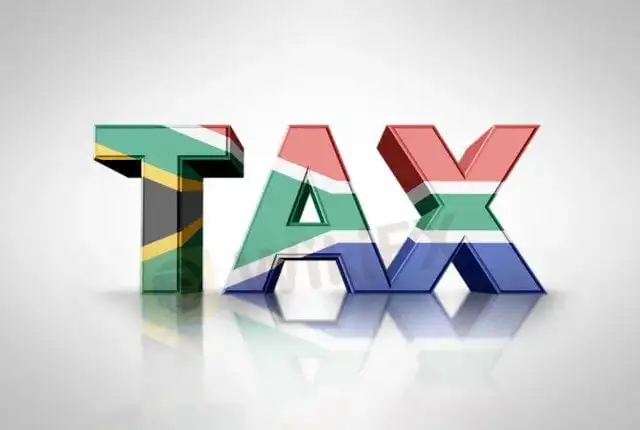简体中文
繁體中文
English
Pусский
日本語
ภาษาไทย
Tiếng Việt
Bahasa Indonesia
Español
हिन्दी
Filippiiniläinen
Français
Deutsch
Português
Türkçe
한국어
العربية
Investors in South Africa Face Hurdles Due to the Taxation of Digital Assets
Abstract:A new tax and financial legislation for digital assets is being developed in South Africa. According to Joon Chong, a lawyer at the South African law firm Webber Wentzel, these new regulations might present investors in digital assets with enormous tax reporting issues.
The challenge would arise from describing the legal meaning the nation is assigning to the asset class, Chong said in an opinion post she penned for top South African business and financial news source Fin24.

Digital assets are anything that is kept on a distributed ledger in a decentralized network, according to the South African Revenue Service (SARS). This includes both money and non-currency assets like NFTs, security tokens and utility tokens. They fall under the Income Tax Act 58 of 1962 (ITA) as a result of this definition, and as a result, their sale will be subject to the “ordinary income tax procedures for financial instruments such as equity shares or unit trusts.”
These regulations classify assets as either capital assets or assets that generate income. This raises the issue of which classification any disposition of a digital asset falls under and if it would be considered a taxable event. Investors in digital assets, however, may find it challenging to demonstrate that their gains or losses from sales are of a capital character because
The crucial factor in evaluating whether profits or losses from the sale of crypto assets are of a capital or income type is the taxpayer's purpose. Due to the high risk and volatility character of this asset class, taxpayers must work harder to demonstrate that their profits or losses are capital in nature, she added.
South Africans should get ready for the new system, Chong said, since the South African Reserve Bank (SARB) has set a 12- to 18-month deadline for the completion of its new AML/CFT and taxation framework for digital assets.
South Africa's battles with nefarious players in the market for digital assets
The string of high-profile digital asset frauds that have been reported in South Africa are substantially to blame for the country's decision to regulate digital assets. The $3.8 billion Africrypt scam is only one example of the country's market-moving fraud cases.
South Africa hopes to introduce a central bank digital currency (CBDC) in addition to the proposed legislation to promote the secure use of digital currencies. An inter-bank operability test was one of several rounds of testing the CBDC underwent by the SARB.
Disclaimer:
The views in this article only represent the author's personal views, and do not constitute investment advice on this platform. This platform does not guarantee the accuracy, completeness and timeliness of the information in the article, and will not be liable for any loss caused by the use of or reliance on the information in the article.
Read more

Forex Hedging: Is It a Trader’s Safety Net or Just an Illusion?
In the volatile world of forex trading, risk is inevitable. One widely used strategy is forex hedging, which is a useful technique designed not to eliminate risk entirely, but to reduce its potential impact. As global economic uncertainty persists, understanding how hedging works could be an essential addition to a trader’s toolkit.

Thinking of Investing? Read Must-Know Facts About Funding pips!
When you check the internet for Funding Pips, you'd be surprised to know it's filled with praise for Funding Pips but often lacks the real facts that traders need. Everything that seems too good to be true should always be verified first. It could be Fraud . So, we conducted research and collected several facts you must know about Funding Pips.

OctaFX Back in News: ED Attaches Assets Worth INR 134 Cr in Forex Scam Case
The Enforcement Directorate (ED) in Mumbai has attached assets worth around INR 131.45 crore. This included a luxury yacht and residential properties in Spain. Read this interesting story.

Truth About Angel One – Here’s What You Need to Know
Thinking about investing in Angel One? Wait! Know the essential things about the broker before Invest. It could be SCAM. Read, think, and invest .
WikiFX Broker
Latest News
He Thought He Earned RM4 Million, But It Was All a Scam
CryptoCurrency Regulations in India 2025 – Key Things You Should Know
OctaFX Back in News: ED Attaches Assets Worth INR 134 Cr in Forex Scam Case
Trump inaugural impersonators scammed donors out of crypto, feds say
Ethereum is powering Wall Street's future. The crypto scene at Cannes shows how far it's come
Forex Hedging: Is It a Trader’s Safety Net or Just an Illusion?
US debt is now $37trn – should we be worried?
OPEC+ members agree larger-than-expected oil production hike in August
Top Wall Street analysts are pounding the table on these 3 stocks
Dukascopy Ends EOS/USD Trading Amid Liquidity Issues
Currency Calculator


